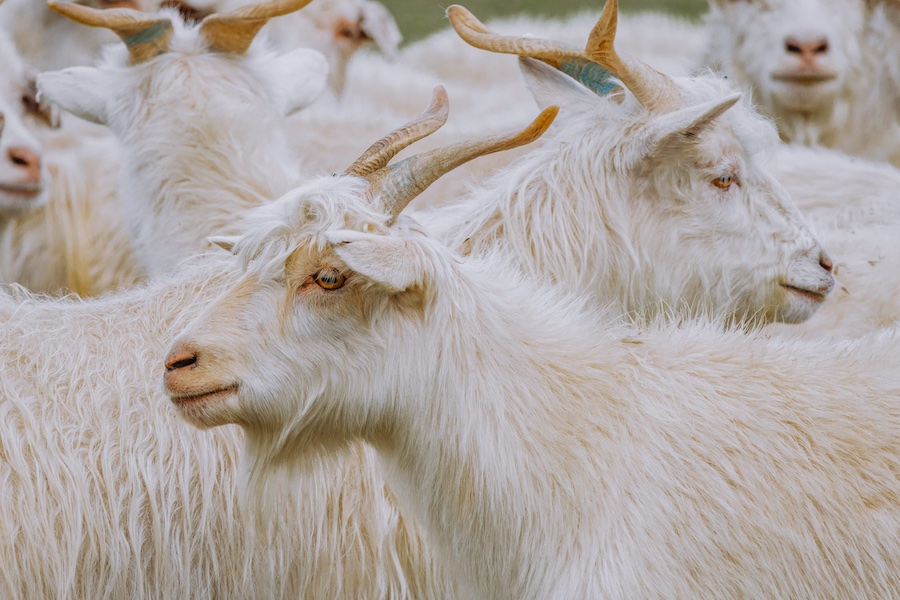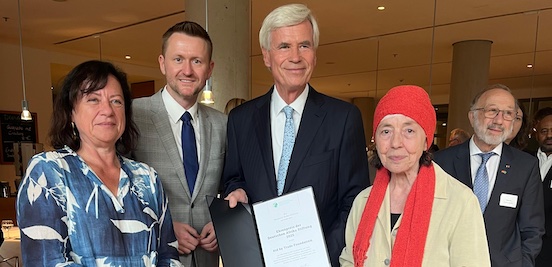#Natural Fibers
Aid by Trade Foundation publishes 2024 annual report: Growing impact for environment and people
The fact that around 3,000 companies throughout the textile supply chain now work with raw materials verified under an AbTF standard illustrates the foundation’s global importance in international trade. “An outstanding example of what committed action in the private sector can achieve has been offered by the work of the Aid by Trade Foundation for the past 20 years,” says the entrepreneur Prof. Dr Michael Otto, who founded AbTF. He adds, “This annual report is therefore more than just a matter of taking inventory. Rather, it shows how much AbTF, its standards, its partner companies, and the raw material producers make possible, united in the conviction that they can give the world a better future.”
More Than 100 Fashion Brands and Textile Companies Use AbTF’s Standards
Including over 100 fashion brands and textile companies, a growing number of international trading partners are enriching their supply chains with raw materials produced in accordance with AbTF’s sustainability standards: Cotton made in Africa© (CmiA), CmiA Organic, and The Good Cashmere Standard© (GCS). This makes these standards market leaders. GCS, for instance, is the world’s only standard for sustainably produced cashmere wool from Inner Mongolia, and its importance for trade is growing continuously; due in part to these factors, the total quantity of textiles containing GCS-verified cashmere wool grew by 30 percent from 2023 to 2024. CmiA, for its part, continues to find success, with more than a third of all cotton produced in Africa being verified under CmiA and entering the global textile market as such.
Innovations Promote Cashmere Goats’ Welfare and Greatly Increase Cotton Yields
The attractiveness of the AbTF standards was boosted significantly by their field results in 2024. For one, over 800,000 cotton farmers and 5,500 goat herders worked in accordance with AbTF’s sustainability standards to supply the international textile market last year. For another, independent verifications confirmed that all AbTF standards are highly effective in terms of profitability, environmental protection, and dignified working conditions. AbTF also conducted pioneering projects to, for instance, expand cashmere model farms, introduce an animal welfare assessment for cashmere goats, and promote regenerative cultivation methods in the cotton sector.
The latter was a key point of focus and progress in the past year, as AbTF’s Regenerative Cotton Standard© (RCS) was successfully implemented in Tanzania and India. Through RCS, AbTF is pursuing a forward-looking approach that focusses on the regeneration of ecosystems. RCS is already finding success, with its use of biochar on demonstration fields increasing yields by 15 percent. AbTF has also achieved success in environmental protection, where the focus was on improving biodiversity while combatting soil degradation and the effects of climate change; better soil measures, for example, resulted in harvests up to 37 percent larger on demonstration fields.
Production of CmiA Organic cotton surpassed the previous year’s total by 50 percent. Thanks to its social component, the standard was able to complement its environmental benefits with achievements in both cultivation and trade.
Through the CmiA Community Cooperation Programme (CCCP), AbTF contributed to the improvement of the living conditions of cotton farmers and their families in Africa, for example, by financing educational and health projects that had promoted nearly 100 women’s clubs and built more than 100 classrooms by the end of 2024.
Seamless Traceability, From Field to Shelf, Through Blockchain Technology and Tracking System
As legal regulations continue to grow, it can only be a benefit that AbTF’s systems already enable textile companies and fashion brands to ensure the complete traceability of their raw materials from production to the finished product. In 2024, the foundation further expanded both its own tracking systems and the use of modern Fibercoins™ technology. To offer companies additional security in their supply chains, AbTF developed the Transparency Standard in 2024.
“The past year’s many successes are once again proof that environmental protection and support for smallholder communities can very well be achieved by mobilising the private sector,” says Tina Stridde, the managing director of the Aid by Trade Foundation, qualifying, “This does require both dedicated partners and an approach that is both practical and innovative.”

















